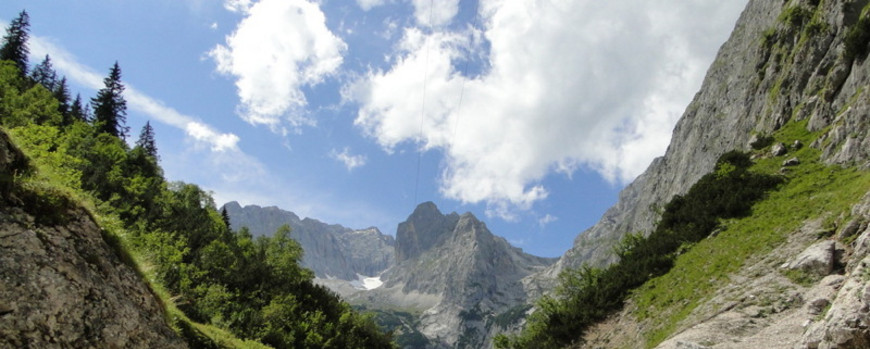Summer School 2018
Concept of the Summer School
We organize a series of two summer schools entitled “Earth Surface Dynamics – Understanding Processes at the Earth’s Vulnerable Skin” led by Prof. Dr. Martin H. Trauth, together with nine instructors from Germany, United Kingdom, and Ethiopia. The series of two consecutive summer schools about the Earth’s Dynamic Surface is targeting a group of 25 doctoral students from geosciences, environmental sciences and related fields such as biology, chemistry, and physics. These summer schools will be designed for doctoral students, aiming (1) to improve their skills to understand the complex interaction of the processes shaping the Earth’s surface at different temporal and spatial scales, (2) to monitor, model and predict the results of these interactions, and (3) to identify and mitigate risks of natural and human-caused interference in these processes in an interdisciplinary and intercultural environment. The two summer schools each comprise three modules with each module covering a week, taking place at different locations in Germany. These locations are representative of typical settings for Earth surface processes, from the coast to lowlands and from continental rifts to high mountains. The first set of modules will focus on types of signals and noise commonly encountered at the Earth’s surface, and methods of acquiring, processing and analyzing data with non-destructive physical surveying methods. The second set of modules will be about the examination and modeling of the processes underlying the data collected at the Earth’s surface. The intense, multifaceted science training program of the summer school will help participants to acquire knowledge and understanding of the processes shaping the Earth’s vulnerable skin and to define premier research topics to study processes at the Earth’s dynamic surface. It will ultimately provide the next generation of researchers, practitioners, and lecturers with the necessary background and scientific tools to evaluate and mitigate the effects of present-day and future environmental change.
Program of the Summer School
Session 1 | 25 May–10 Jun 2018
M1 Signals and Noise at the Earth‘s Surface (Rügen, Germany)
20–27 May 2018 | apl. Professor Trauth, Doctor Berner
M2 Exploring the Shallow Subsurface of the Earth (Potsdam, Germany)
27 May–3 Jun 2018 | Professor Tronicke
M3 Remote Sensing of Earth Surface Processes (Wandlitz, Germany)
3–10 Jun 2018 | Professor Bookhagen
Session 2 | 12 Aug–2 Sep 2018
M4 Modeling of Surface and Subsurface Processes (Potsdam, Germany)
12–19 Aug 2018 | Professor Holzbecher
M5 Geoinformation Systems of the Earth's Surface (Garmisch-Partenkirchen, Germany)
19–26 Aug 2018 | Doctor Zeilinger
M6 Extreme Events, Geohazards and Georisk (Neustadt an der Weinstrasse, Germany)
26 Aug–2 Sep 2018 | Doctor Schwanghart
During Sessions 1 and 2
M7 Communicating Science
Doctor Foerster, Professor Asrat, Professor Maslin
M8 Earth Surface Processes Field Excursions
All instructors
Instructors of the Summer School
apl. Professor Dr. Martin H. Trauth, University of Potsdam
Prof. Dr. Asfawossen Asrat, U Addis Ababa, Ethiopia
Dr. Nadine Berner, Gesellschaft für Anlagen- und Reaktorsicherheit (GRS) gGmbH, Germany
Prof. Dr. Bodo Bookhagen, U Potsdam, Germany, and UC Santa Barbara, USA
Prof. Dr. Ekkehard Holzbecher, German U of Technology, Oman
Dr. Verena Foerster, U Köln, Germany
Prof. Dr. Mark Maslin, University College London, UK
Prof. Dr. Jens Tronicke, U Potsdam, Germany
Dr. Wolfgang Schwanghart, U Potsdam, Germany
Dr. Gerold Zeilinger, U Potsdam, Germany

